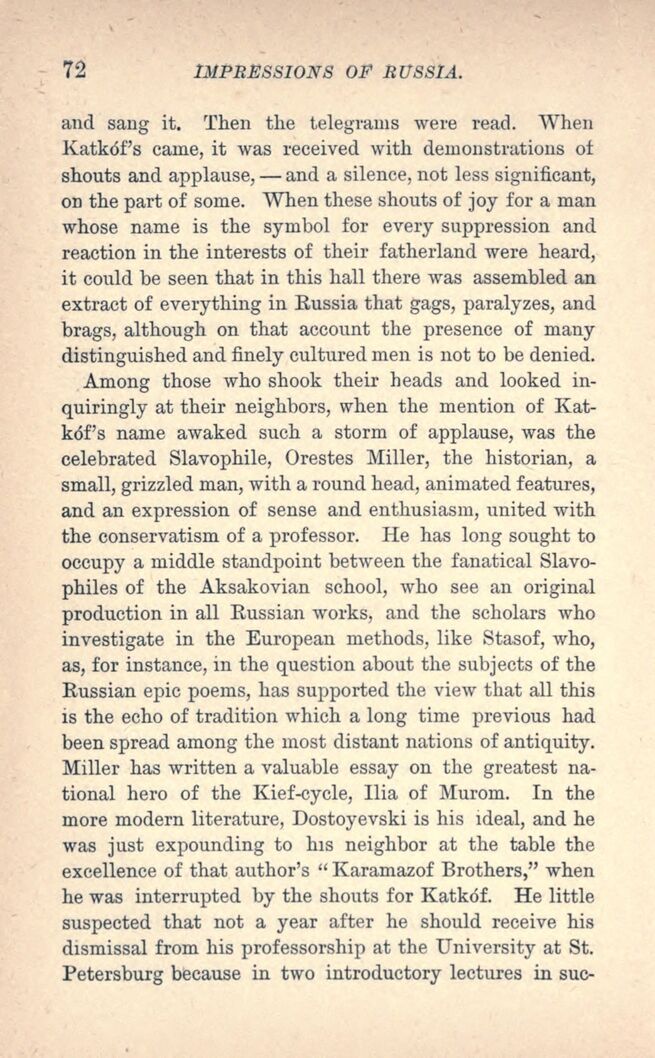
Full resolution (JPEG) - On this page / på denna sida - V

<< prev. page << föreg. sida << >> nästa sida >> next page >>
Below is the raw OCR text
from the above scanned image.
Do you see an error? Proofread the page now!
Här nedan syns maskintolkade texten från faksimilbilden ovan.
Ser du något fel? Korrekturläs sidan nu!
This page has been proofread at least once.
(diff)
(history)
Denna sida har korrekturlästs minst en gång.
(skillnad)
(historik)
and sang it. Then the telegrams were read. When
Katkóf’s came, it was received with demonstrations of
shouts and applause, — and a silence, not less significant,
on the part of some. When these shouts of joy for a man
whose name is the symbol for every suppression and
reaction in the interests of their fatherland were heard,
it could be seen that in this hall there was assembled an
extract of everything in Russia that gags, paralyzes, and
brags, although on that account the presence of many
distinguished and finely cultured men is not to be denied.
Among those who shook their heads and looked
inquiringly at their neighbors, when the mention of
Katkóf’s name awaked such a storm of applause, was the
celebrated Slavophile, Orestes Miller, the historian, a
small, grizzled man, with a round head, animated features,
and an expression of sense and enthusiasm, united with
the conservatism of a professor. He has long sought to
occupy a middle standpoint betwreen the fanatical
Slavophiles of the Aksakovian school, who see an original
production in all Russian works, and the scholars who
investigate in the European methods, like Stasof, who,
as, for instance, in the question about the subjects of the
Russian epic poems, has supported the view that all this
is the echo of tradition wrhich a long time previous had
been spread among the most distant nations of antiquity.
Miller has written a valuable essay on the greatest
national hero of the Kief-cycle, Ilia of Murom. In the
more modern literature, Dostoyevski is his ideal, and he
was just expounding to his neighbor at the table the
excellence of that author’s “Karamazof Brothers,” when
he was interrupted by the shouts for Katkóf. He little
suspected that not a year after he should receive his
dismissal from his professorship at the University at St.
Petersburg because in two introductory lectures in
<< prev. page << föreg. sida << >> nästa sida >> next page >>